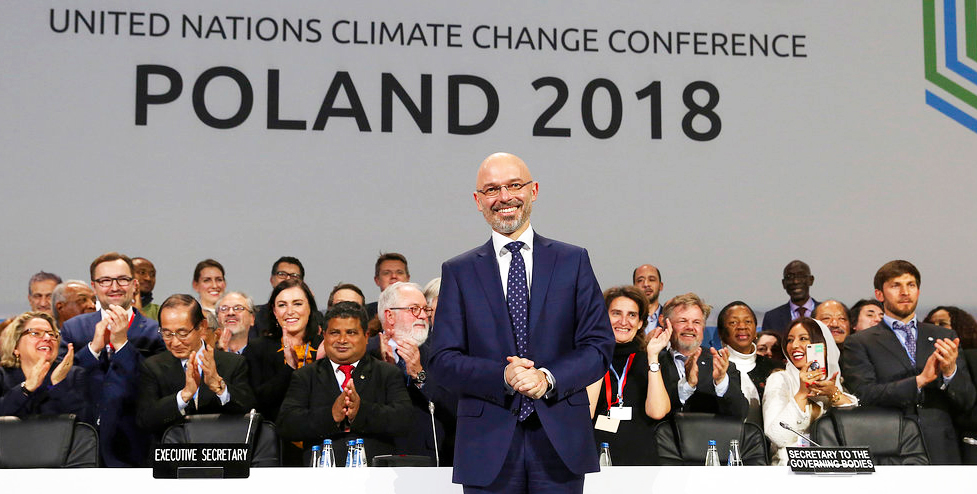The world’s nations wrapped up a two-week climate summit on Saturday with a rulebook for actions to curb global warming that analysts said appears weak, biased in favour of developed countries, and inadequate to protect millions from climate change impacts.
The summit stretched into an extra 24 hours as negotiators from developed and developing countries scrambled to find a “common landing ground” on the rulebook — guidelines to implement the 2015 Paris climate agreement that seeks to cap global temperature rise to 2°C or lower.
The guidelines propose how countries will provide information about their climate actions to cut their Earth-warming greenhouse gas emissions and processes to conduct a “global stocktake” on effectiveness of climate actions in 2023 and to enhance financial support from developed countries to developing countries.
But negotiators from developing countries, wary of some ground lost during the talks, are neverhtless leaving with some satisfaction. Asked if the outcome is in favour of developed countries, a top negotiator from a developing country said: “You could say so.”
“But we’ve kept important red lines and have lived to negotiate another day,” the official told The Telegraph.
The chair of the least developed countries group, Gebru Jember Endalew said: “While there are parts of the package that should have been stronger, the guidelines adopted today provide a strong basis to start implementing the (Paris) agreement.”
The UN body that umbrellas climate change negotiations said the “Katowice Climate Package” that emerged from the talks is designed to operationalise the Paris agreement and promote trust among nations that all countries are now playing their part to address the climate change challenge.
But climate policy analysts on Sunday described the outcome of the summit as weak and cautioned that the conference had failed to align ambition with science. They said countries had missed the necessity to make clear that global fossil fuel emissions must be cut by half by 2030 to cap global warming at 1.5°C as pointed out by the Intergovernmental Panel on Climate Change, an international scientific body.
“This is a real concern — we continue to follow a path that will take us to a very dangerous 3 to 4 degrees warmer world within this century,” said Johan Rockstrom, the director designate at the Potsdam Institute for Climate Impact Research. “Extreme weather events hit people across the planet already now, at only one degree global warming.”
Chandra Bhusan, a climate expert with India’s Center for Science and Environment, a research think tank said the Katowice outcome is weak on ambition. “There has been no decision to raise ambitions for emissions cut by different countries towards the 1.5°C target,” Bhushan said.
Harjeet Singh, global climate lead of ActionAid, claimed that financial support remains a key area of concern. The guidelines would allow developed countries to report “whatever they want on finance.”
He said loans and guarantees to developing countries are likely to be portrayed as climate finance instead of only grants as originally pledged by developed countries in 2010.
India’s environment ministry on Sunday described the conference outcome as “positive” and said it “addresses concerns of all Parties and sets us on the path towards successful implementation of the Paris agreement.”
The ministry, in a statement said, the guidelines recognize the “leadership” that developed countries have to display to achieve objectives of the Paris agreement, provide certain flexibilities to developing countries, and recognize the need for climate finance to be “new, additional and climate specific.”
Indian officials, ahead of the conference, had articulated the importance of these three items for India.
Analysts said countries will need to articulate by the next UN climate summit in September 2019 how their planned climate actions respond to the warnings from the IPCC earlier this year that climate change impacts would be much worse under 2°C than under 1.5 °C temperature rise.
“Countries need to go back to their capitals and start doing their homework to get ready,” Helen Mountford, vice president for global climate and economics at the Washington DC-based World Resources Institute said in a statement.












